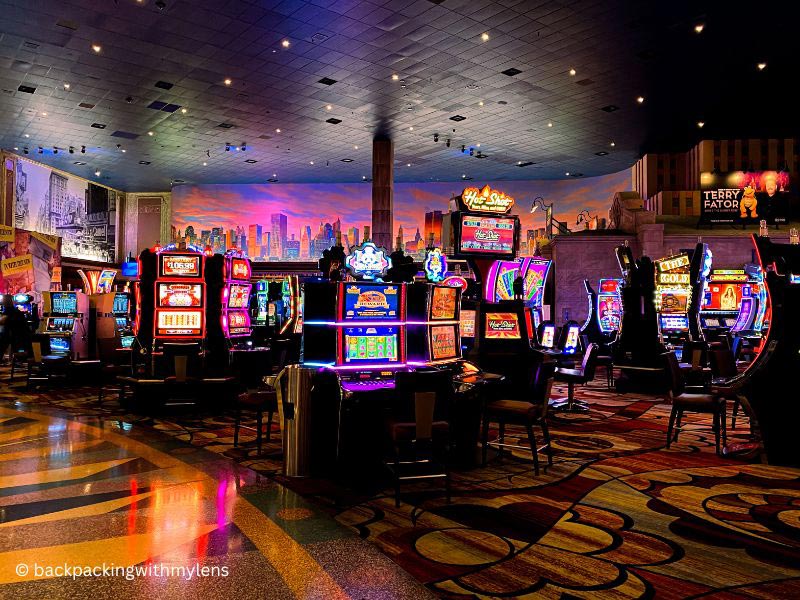
Within the lively world of gambling halls, where the atmosphere pulses with excitement and the clattering of tokens fills the space, the role of a game dealer is both crucial and fascinating. Every day, these experienced experts step into a realm where fortune and strategy intertwine, leading players through the ups and downs of their selected casino titles. From card games like blackjack and poker to the spinning wheels of roulette, dealers manage the gameplay while making sure that each game runs smoothly and honestly.
As the day breaks on another bustling day, a casino game dealer prepares to dive in this dynamic setting. Their duties extend beyond merely distributing cards or spinning a wheel; they are also performers, customer service representatives, and guardians of the game regulations. Each shift brings new obstacles and experiences, making every day distinct in the life of a casino dealer. This insider look will examine the daily routine of a casino dealer, showcasing the expertise and insights that make this career both thrilling and rewarding.
The Role of a Gambling Table Dealer
A gambling game dealer is at the heart of the gaming experience, managing the flow of the play while making sure that players are involved and entertained. Their main responsibility is to manage the game, which involves dealing cards, spinning the wheel, or managing the chips, based on the game being played. Croupiers must have a deep understanding of the rules and regulations governing each type of game, while also maintaining a friendly and approachable demeanor to enhance the gaming atmosphere.
In addition to managing the play, dealers must also monitor on the players and the surroundings around the game. This includes watching for any indications of cheating, making sure that everyone is adhering to the guidelines, and addressing any disputes that may arise among players. Strong communication skills are essential, as dealers often give explanations about the game’s mechanics and give assistance to those who may be new to casino games.
Furthermore, a dealer’s role extends past just the technical aspects of the play. They play a key part in crafting an enjoyable experience for the players. This requires building a connection with patrons, being attentive to their wants, and often adding an aspect of entertainment into the play. It’s this mix of skill, vigilance, and people skills that makes the position of a casino game dealer both demanding and fulfilling in the dynamic world of casino games.
Responsibilities and Challenges in Daily Operations
One of the key responsibilities of a dealer in a casino is to supervise the various games provided at their table, guaranteeing a seamless and satisfying experience for players. Dealers must be adept at dealing cards, handling chips, and maintaining the flow of the game. casino zonder cruks This calls for a deep understanding of the regulations of each game, from blackjack to roulette, and the ability to answer players’ questions while keeping the game moving. Attention to detail is paramount, as dealers must monitor bets, pay out winnings accurately, and monitor any cheating or discrepancies at the table.
In addition to supervising the game itself, dealers encounter challenges such as dealing with difficult players. The casino environment can be stressful, particularly during high-stakes games, and a dealer must remain calm and maintain professionalism at all times. They need strong interpersonal skills to handle interactions with players who may be upset about losses or dissatisfied with the game’s speed. Navigating these situations delicately is important in creating a positive atmosphere on the casino floor.
Another major responsibility is upholding the honesty of the game. Dealers must be alert and attentive, watching for any signs of player cooperation or cheating among players. This entails not only a strong knowledge of the games but also an awareness of human behavior. They must also follow the casino’s rules and procedures, participating in regular training sessions to keep updated on rules and protocols. Balancing these responsibilities while providing excellent customer service is what makes the role both challenging and rewarding for a casino game dealer.
Skills and Traits for Success
A proficient casino game dealer must possess outstanding communication skills. This includes not only the ability to effectively explain game rules and procedures to players but also the capacity to engage with them in a cordial and competent manner. Fostering rapport with guests can enhance the gaming experience and promote repeat visits to the casino. Proficient communication enables dealers to manage tables efficiently while ensuring that players feel appreciated.
Additionally, strong mathematical skills are essential for a dealer. Quick math are often required to follow bets, payouts, and game outcomes in the moment. A dealer’s ability to perform these math operations accurately and swiftly adds to the overall efficiency of the game. This skill helps in maintaining the flow of play and in minimizing disputes or misunderstandings with players, which is crucial in a rapid casino environment.
Lastly, an ideal casino game dealer should demonstrate integrity and professionalism at all times. Trust is a key component of the gaming experience, and players must feel secure that the games are conducted fairly and clearly. A dealer’s devotion to upholding high ethical standards fosters a welcoming atmosphere at the table and enhances the casino’s standing. Being reliable in behavior ensures that dealers leave a enduring impression on guests, which can lead to a faithful customer base.
